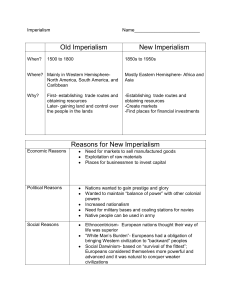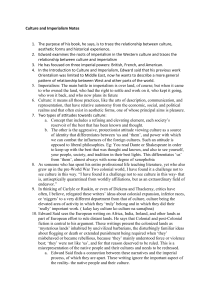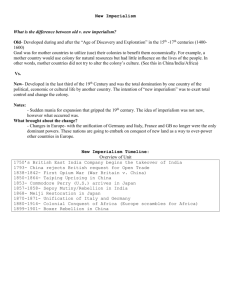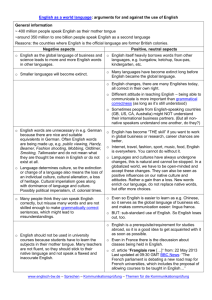The Boxer Rebellion Student Activity Below is a collection of
advertisement
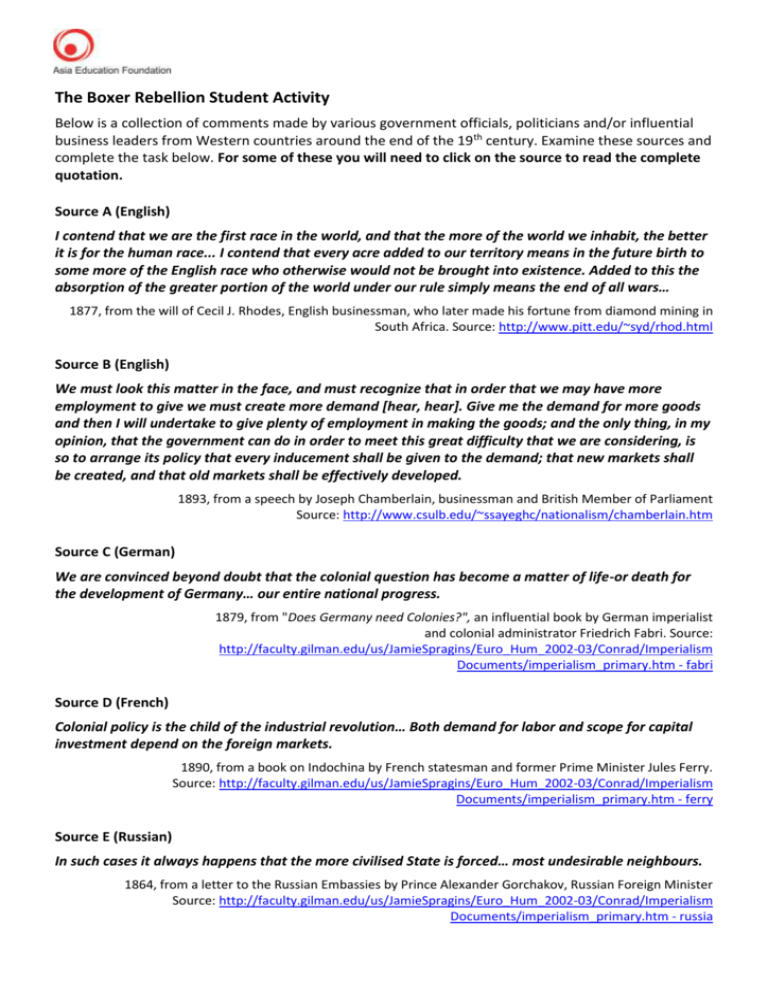
The Boxer Rebellion Student Activity Below is a collection of comments made by various government officials, politicians and/or influential business leaders from Western countries around the end of the 19th century. Examine these sources and complete the task below. For some of these you will need to click on the source to read the complete quotation. Source A (English) I contend that we are the first race in the world, and that the more of the world we inhabit, the better it is for the human race... I contend that every acre added to our territory means in the future birth to some more of the English race who otherwise would not be brought into existence. Added to this the absorption of the greater portion of the world under our rule simply means the end of all wars… 1877, from the will of Cecil J. Rhodes, English businessman, who later made his fortune from diamond mining in South Africa. Source: http://www.pitt.edu/~syd/rhod.html Source B (English) We must look this matter in the face, and must recognize that in order that we may have more employment to give we must create more demand [hear, hear]. Give me the demand for more goods and then I will undertake to give plenty of employment in making the goods; and the only thing, in my opinion, that the government can do in order to meet this great difficulty that we are considering, is so to arrange its policy that every inducement shall be given to the demand; that new markets shall be created, and that old markets shall be effectively developed. 1893, from a speech by Joseph Chamberlain, businessman and British Member of Parliament Source: http://www.csulb.edu/~ssayeghc/nationalism/chamberlain.htm Source C (German) We are convinced beyond doubt that the colonial question has become a matter of life-or death for the development of Germany… our entire national progress. 1879, from "Does Germany need Colonies?", an influential book by German imperialist and colonial administrator Friedrich Fabri. Source: http://faculty.gilman.edu/us/JamieSpragins/Euro_Hum_2002-03/Conrad/Imperialism Documents/imperialism_primary.htm - fabri Source D (French) Colonial policy is the child of the industrial revolution… Both demand for labor and scope for capital investment depend on the foreign markets. 1890, from a book on Indochina by French statesman and former Prime Minister Jules Ferry. Source: http://faculty.gilman.edu/us/JamieSpragins/Euro_Hum_2002-03/Conrad/Imperialism Documents/imperialism_primary.htm - ferry Source E (Russian) In such cases it always happens that the more civilised State is forced… most undesirable neighbours. 1864, from a letter to the Russian Embassies by Prince Alexander Gorchakov, Russian Foreign Minister Source: http://faculty.gilman.edu/us/JamieSpragins/Euro_Hum_2002-03/Conrad/Imperialism Documents/imperialism_primary.htm - russia Source F (American) Have we no mission to perform no duty to discharge to our fellow man? Has God endowed us with gifts beyond our deserts and marked us as the people of His peculiar favour, merely to rot in our own selfishness, as men and nations must, who take cowardice for their companion and self for their deityas China has, as India has, as Egypt has? 1898, from a campaign speech by Albert Beveridge, US Senator from Indiana. Source: http://www.fordham.edu/halsall/mod/1898beveridge.asp Task: Choose a phrase from each of the sources A-F which suggests that either: Western nations believed they were superior to other nations and/or had a duty to civilize the rest of the world OR Western nations saw economic benefits in colonising or controlling other parts of the world Paste your phrase in the appropriate box below Source identity Source A Source B Source C Source D Source E Source F Western civilisation believed it was superior to the rest of the world Western powers were looking for economic benefits
